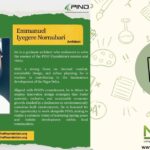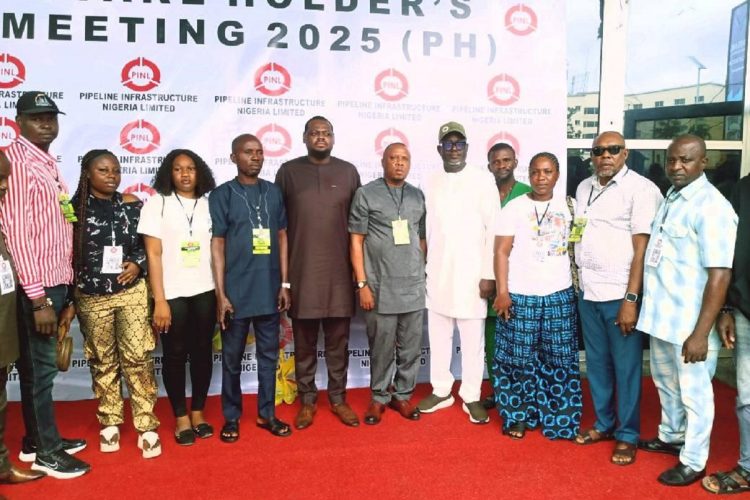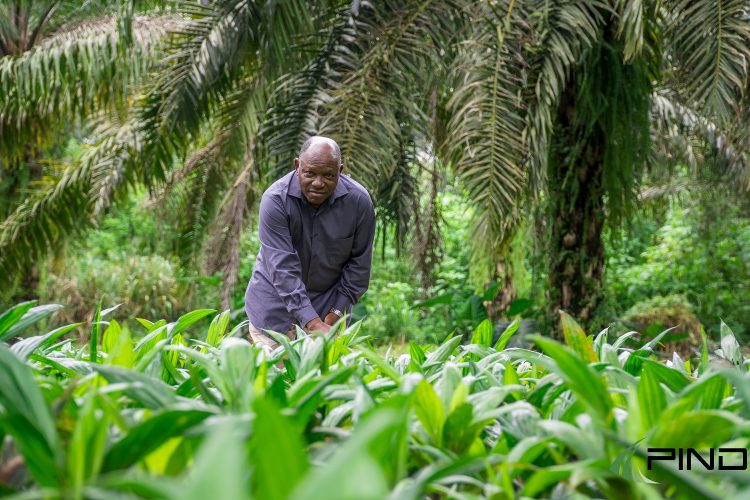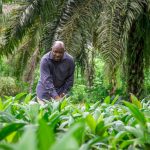
Illuminating Communities: How PIND’s clean energy intervention is reducing poverty, conflicts in Niger Delta by Samuel Chime
November 28, 2023
SEEDS OF SUSTAINABILITY: HOW GREEN SKILLS AND TECHNOLOGY IS TRANSFORMING THE NIGER DELTA by EMMANUEL IYEGERE
November 28, 2023Chibuoke Mmesoma
In the heart of the Niger Delta, a region rich in natural resources and profound challenges, pursuing sustainable development is a formidable task. This article delves into the intricate interplay between environmental stewardship, technological innovation, and regional peacebuilding efforts. It explores the complex dynamics of these factors while highlighting the efforts spearheaded by the Foundation for Partnership Initiatives in the Niger Delta (PIND).
PIND’s vision of fostering a strong legacy of sustainable peace and development among communities in the Niger Delta resonates with the article’s central theme, which underscores the intricate connections between green skills, technology, and peace in achieving sustainable development in the Niger Delta. This cohesive approach underscores the organization’s commitment to holistic development in the region.
Green Skills and Technology for Sustainable Development
The sustainable development goals (SDG) are more likely to be attained if green technology is used in the Niger Delta. There may be difficulties in meeting the goals if there are deficiencies in green technology skills. These skill gaps can only be addressed by introducing extensive training programs that provide people with the necessary foundational skills. Through active involvement in adopting green technology, local communities become catalysts for economic development, enhancing long-term prosperity by nurturing a skilled workforce adept in sustainable practices.
The International Labour Organization notes that integrating green skills, such as renewable energy expertise or eco-friendly agriculture, creates employment opportunities and attracts investments, bolstering a region’s economic growth. Moreover, the cultivation of a sustainable workforce not only ensures resilience in the face of changing global dynamics but also positions the region as a hub for environmentally conscious industries, fostering sustainable economic development in the long run. This change in thinking is predicated on the complementary nature of education and technology, which may pave the way for inclusive and long-lasting growth in the Niger Delta.
PIND’s Approach to Green Skills and Technology Development
PIND’s outstanding commitment to advancing sustainable development in the region, exemplified by their focused projects, is timely. Notably, PIND’s impactful energy interventions, such as the Appropriate Technology Enabled Development (ATED) center and its clean energy initiatives like the Chokor Oven, which can smoke up to 200kg of fish, significantly reduce wood usage by up to 50%, conserves heat internally to minimize fire risks, and offers a safer and faster alternative to traditional metal drum smoking methods Likewise, the Biodigester, which converts human and food waste into gas for cooking, have brought tangible benefits to local communities.
Also, introducing clean energy through projects like the Access to Energy (A2E) initiative has been transformative for off-grid communities, providing them with reliable access to electricity. According to PIND’s 2022 annual report, 2,778 businesses and households in the Niger Delta gained access to electricity
for the first time during the year. Also, 595.969 million naira was accrued in savings by community
users of PIND-facilitated renewable energy solutions. PIND has been tackling the issue of poor access to energy by “facilitating alternative and affordable off-grid energy solutions, capable of targeting not only basic energy needs but also productive use of energy at both household and rural enterprise levels.”
Through its Youth Employment Pathways (YEP) project, PIND trains young persons in agriculture, ICT, construction, and renewable energy. PIND’s approach involves innovative and quality
technical occupational training, preparing selected youth with market-relevant skills, and supporting their transition into work or entrepreneurship. For example, as it relates to green skills and technology, as part of a collaboration with Deutsche Gesellschaft fur Internationale Zusammenarbeit (GIZ) and Edo Jobs, PIND trained 200 youths on how to operate and maintain small to medium solar photovoltaic (PV) technology solutions in August 2019. Also, recently, in commemoration of International Youth Day, PIND, in collaboration with Young Professionals and Global Shapers, trained 20 youths from across the Niger Delta on solar PV installation and entrepreneurship while sharing installation kits with them.
Green Technology and Conflict Reduction
Comprehending the intricate interactions between achieving long-lasting peace and sustainable growth driven by technology is crucial. Green technologies, which prioritize renewable energy sources, have the potential to lessen Nigeria’s dependence on fossil fuels and, in turn, reduce disputes over scarce resources, as well as conflicts related to the exploration and exploitation of oil and gas. Furthermore, the establishment of job opportunities through these technologies has the potential to reduce poverty, which is a significant source of instability. A report by Clean Energy Wire buttresses that “the global energy transition and the shift to renewables from fossil fuels is likely to reduce energy-related conflicts.” However, while the influence of green technology in conflict reduction is established, Vane Aminga highlights that renewable energy projects can also have unintended negative impacts and lead to land-use conflicts, exploitation in communities with critical minerals, and aggravated pre-existing conflicts.
Integrating Peacebuilding Processes in the Adoption of Green Technology in the Niger Delta
Green technology projects can provide access to clean energy and mitigate the deteriorating impact of climate change. However, these projects may exacerbate conflicts due to land use issues, poor compensation to residents of local communities, and so on. Meeting the SDG Goals must be holistic. Thus, while meeting SDG Goal 7 (affordable and clean energy), simultaneous efforts must be made not to hinder Goal 16 (peace, justice, and strong institutions).
Based on the preceding, there is a need to integrate peacebuilding processes in teaching green skills and adopting green technology in the Niger Delta. Research shows “there is a need for improved community engagement measures that combine top-down and bottom-up approaches for effective transitions to renewable energy. This would ensure that any potential vulnerabilities are addressed on time.”
PIND’s approach involves mainstreaming peacebuilding and conflict sensitivity skills while facilitating capacity building for green skills and technology. This is based on the understanding that implementing climate change adaptation and mitigation projects has to be conflict sensitive, especially with its work in the Niger Delta, which has a history of fragility.
Conclusion
This article has explored several facets of the connection between green skills, technology, and peace in the Niger Delta, illuminating the intricate web they form. The comprehensive examination of PIND’s projects, such as the ATED Centre, clean energy initiatives like the Chokor Oven, their extensive work in providing clean energy to off-grid communities through projects like the A2E initiative, and the capacity building of youths in green skills underlines the paramount importance of sustainability-focused projects in shaping and implementing development endeavors in the Niger Delta region. Their capacity to bridge gaps, empower people, and employ the transformative potential of technology-driven sustainable development in conflict reduction highlights their catalytic importance in the region’s growth.
However, as we navigate the path towards sustainable development, it is essential to ensure that green technology adoption does not inadvertently exacerbate conflicts but contributes to peace and development in the Niger Delta. The integration of peacebuilding processes into green technology initiatives holds the key to achieving a harmonious balance between prosperity and stability, paving the way for a brighter, more sustainable future in the region.
To Learn more about PIND Foundation’s Access to Energy Interventions, Visit this link: https://pindfoundation.org/project/access-to-energy
See also links to Articles from the two other winners:









